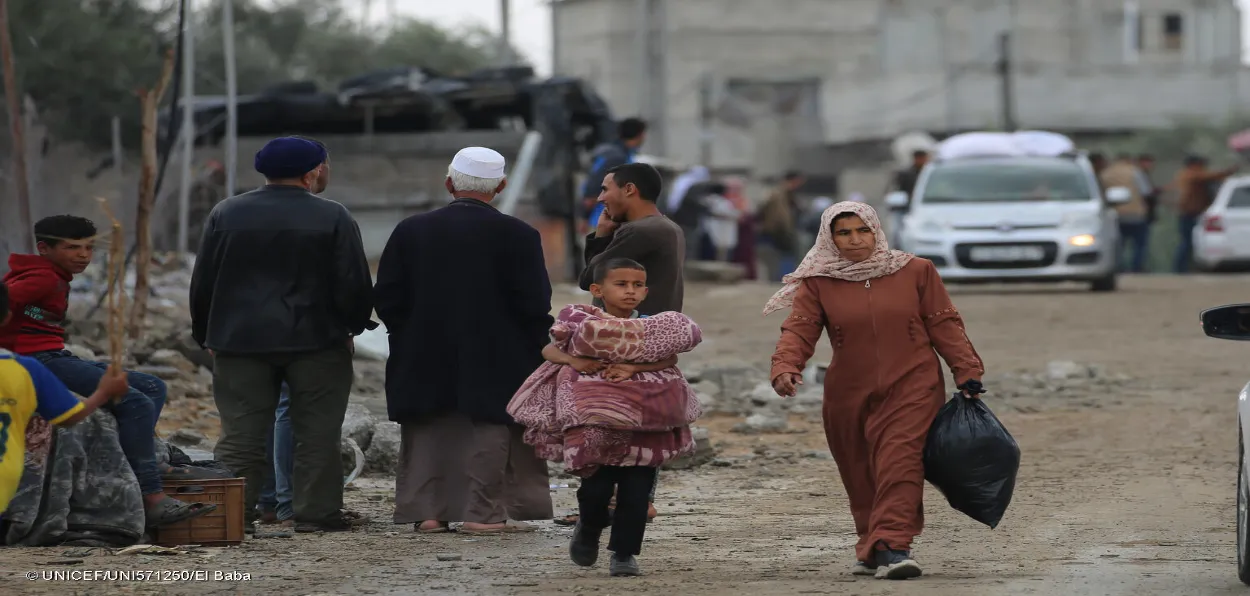
Eman Sakina
A comprehensive and divinely-revealed religion, Islam holds human life in the highest regard. One of its fundamental principles is the sanctity of the soul — a sacred endowment from God that must not be taken without just cause. In an age where misinterpretations of religious teachings can lead to violence and extremism, it is essential to revisit the Islamic teachings that emphasize compassion, justice, and above all, the prohibition of unjust killing.
Friday Musings
The Quran, Islam’s primary source of guidance, is unequivocal in its condemnation of the unjust taking of life. In Surah Al-Ma’idah (5:32), Allah states:
"Whoever kills a soul unless for a soul or for corruption [done] in the land – it is as if he had slain mankind entirely. And whoever saves one – it is as if he had saved mankind entirely." - (Quran 5:32)
This verse draws a direct connection between a single life and the entirety of humanity. The sanctity of one soul is equated with the sanctity of all human life. This principle, which echoes earlier Abrahamic revelations, establishes that the killing of even a single innocent person is a grievous crime in the eyes of God.
Moreover, in Surah Al-Isra (17:33), the Quran further states: "Do not kill the soul which Allah has made sacred, except by right." (Quran 17:33)
This verse reiterates that life is inherently sacred and only under extreme and clearly defined circumstances, such as legal justice, can it be taken. These exceptions are tightly regulated, emphasizing the seriousness with which Islamic law treats the matter of life and death.
The Prophet Muhammad (peace be upon him), the final messenger of Islam, was a model of mercy and compassion. His sayings (Hadith) are replete with teachings that prohibit murder and encourage peaceful coexistence.
In a Hadith narrated by Al-Bukhari and Muslim, the Prophet said: "A Muslim is one from whose tongue and hands people are safe, and a believer is one in whom people place their trust concerning their lives and wealth."
This statement highlights that true faith is incompatible with violence and harm. A practicing Muslim does not terrorize others, but ensures the safety and dignity of those around him.
In another Hadith from Sahih al-Bukhari, the Prophet warned: "The first cases to be adjudicated between people on the Day of Judgment will be those of bloodshed."
The severity of unjust killing is such that it will be among the foremost issues addressed in the afterlife, showing how grave an offense it is in Islamic theology.
Under Islamic law, Sharia, the protection of life is one of the five essential objectives (Maqasid al-Shariah), alongside religion, intellect, lineage, and property. This legal philosophy underscores that the preservation of life is not merely a social virtue but a divine imperative.
During the Prophet’s governance in Medina and later under the rightly guided caliphs, strict laws were implemented to safeguard human life. Even in times of war, non-combatants — including women, children, the elderly, and religious clergy — were explicitly protected. Islamic military ethics forbade the killing of civilians, the destruction of crops, and harm to animals or places of worship.
Misinterpretation and Modern Extremism
Despite the clear teachings of Islam, certain extremist groups have distorted its principles to justify violence. These actions are not only a betrayal of Islamic values but also a violation of the very texts they claim to uphold.
Islamic scholars across the world have repeatedly denounced terrorism and the killing of innocents. Institutions such as Al-Azhar University in Egypt and scholars like Sheikh Abdallah bin Bayyah have issued fatwas (religious rulings) condemning these acts as anti-Islamic.
Terrorism is not jihad — a term that means "struggle" and is often used to refer to self-improvement or defense under strict ethical guidelines. Rather, unjust killing is fasad (corruption), a crime the Quran itself warns against repeatedly.
Islamic teachings on the sanctity of life align closely with modern human rights values. The right to life is a universal principle, and Islam affirms it not only for Muslims but for all human beings. The Quran does not differentiate in the application of this value based on religion or ethnicity.
In Surah Al-An’am (6:151), Allah commands: "Do not kill the soul which Allah has forbidden, except by right. This He has instructed you that you may use reason."
The phrase “that you may use reason” encourages reflection and rationality — qualities that oppose emotional or ideological impulses that lead to violence.
Islam's message is one of peace, mercy, and respect for life. The killing of innocent souls is one of the gravest sins, condemned by the Quran, the Prophet Muhammad, and centuries of Islamic scholarship. Muslims are called not only to refrain from such acts but also to stand against injustice and protect the vulnerable.
ALSO READ: Pahalgam terror attack: Indian Muslims' protests unprecedented
In a world where violence is often wrongly associated with faith, it is essential to return to the true teachings of Islam — a religion that upholds the dignity of every soul and considers the unjust taking of life as a crime against all of humanity.
